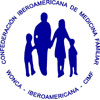Novel technology for supporting rural community first responders
Resumo
Objetivos: To establish whether technology can be used to improve clinical management by CFRs. To establish whether automatically generated handover reports can improve communication between CFRs and clinicians.
Metodologia ou Descrição da Experiência: Prototype development, testing and evaluation.
Resultados: This is a project in progress. We have developed a working prototype involving an Android tablet PC linked via Bluetooth to a pulse oximeter and a respiratory rate monitor. A user interface allows the CFR to observe the patient’s vital signs and allows input of observational data and a record of actions taken. A Natural Language Generation algorithm integrates the physiological data with the recording by the CFR to generate a handover report. The system seems to be robust in terms of signal stability and a small scale evaluation by ambulance clinicians suggests that the handover reports are informative.
Conclusão ou Hipóteses: Digital technology may be useful in assisting trained volunteers to deliver immediate care and in generating good quality handover reports in emergency situations. Field trials are ongoing.
Palavras-chave
Texto completo:
PDF (English)Apontamentos
- Não há apontamentos.
Este periódico é de responsabilidade das associações:
Apoio institucional:







